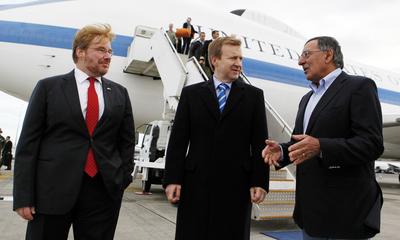but the longstanding importance of Asia to New Zealand remained a well-recognised and controversial issue.
New Zealand’s Defence White Paper 2010 gave primacy to ‘security partnerships’ with Australia, the United States, the United Kingdom and Canada as partnerships that are ‘grounded in common traditions, experiences, and values’. ‘Values’ was mentioned frequently throughout the White Paper, although it specified only ‘primacy of the rule of law, constraints on the unilateral exercise of force, and extending the same rights and responsibilities to all nations regardless of size or allegiance’ — values that are hardly unique to the Anglosphere. Preferring traditional allies can be supported by an idea of ‘social distance’, but its biggest element is really familiarity. Different economic interests and even different strategic alignments relative to Asia necessitate more incisive and innovative thinking.
Through 2012, diplomatic events, all minor and unquestioned in isolation, contributed to warming relations with ‘traditional’ allies. But key developments were elsewhere. Even in the South Pacific, usually seen as offering the clearest advantages of cooperation with the US and Australia, the biggest event in the year was the agreement with China and the Cook Islands for a tripartite approach to a specific aid project to improve water quality.
New Zealand’s stance on the Trans-Pacific Partnership (TPP) remained unchanged — it is a step toward a Free Trade Area of the Asia Pacific that would include China and all major economies in the region. It cannot be a means of ‘containing’ China.
Domestically, the controversy over the TPP was part of political theatrics. Critics concentrated on two issues: secrecy and extension beyond ‘trade’. Yet on the first issue, nobody showed that TPP procedures differed markedly from previous agreements, such as FTAs, WTO rounds, or, especially significant to New Zealand, the Closer Economic Relations negotiations. Open agreements secretly arrived at has been the rule. Of course, conventions change; not only are executive agreements now subject to parliamentary scrutiny — and if the efficacy of that can be questioned, it is hardly peculiar to the TPP — but there are also indications of a wider movement toward ‘participatory’ governance. The ‘stakeholder events’ in TPP negotiating rounds recognise this, going well beyond the business consultations that were an important part of the New Zealand–China agreement.
The second argument, that the TPP goes beyond ‘trade’ and infringes on sovereignty, is even more misconceived. The issue has always been economic interdependence, not ‘trade’, and the range of explicit agreements has been widening ever since tariff reduction was initiated. More importantly, all international agreements impose some constraint on domestic ‘policy space’. The protest is not against the TPP, but against a New Zealand government the protestors dislike but which is acting within its constitutional mandate (and presumably within its assessment of electoral opinion).
The new element in 2012 is the Regional Comprehensive Economic Partnership (RCEP), a proposed instrument for anchoring the ASEAN Economic Community in an appropriate regional and global setting, through an agreement with the existing ASEAN FTA partners: China, Japan, Korea Australia, India and New Zealand.
Beyond the obvious difference in membership of the RCEP — the US and other non-Asian members of the TPP being excluded and all of ASEAN and India being included — the approach of the RCEP will differ from the TPP. It will be much more focused on economic interdependence as a vehicle for inclusive economic growth, including explicit attention to development gaps. It will see international production networks as central rather than a chapter added to the familiar set of goods, services and investment. It will also probably rely more on agreed objectives and peer review than on ‘binding’ rules.
It is worth noting that the difference is not between a rules-based system and one built on capacity enhancement and cooperation. The difference between the RCEP and the TPP lies in the content of rules, not their existence, and about whether commitment is best developed through peer review or via some kind of supranational enforcement. All are differences of degree, but they amount to a need for New Zealand to adjust from the comfortable familiarity of the TPP format.
The New Zealand government has welcomed the RCEP and sees no incompatibility between it and the TPP — a view that is presumably shared in other countries which are parties to both the TPP and RCEP, Australia, Brunei, Malaysia, Singapore and Vietnam. Although incompatibility between the two agreements could emerge in specific provisions, this would first be addressed within ASEAN. In the meantime, New Zealand can continue to seek to avoid any divide between Asia and the Americas.
A wish to avoid any line through the Pacific Ocean is widely shared outside New Zealand as well as within it, but is under pressure. The United States is increasingly merely a significant partner of the Asian economies rather than their leader, while it remains a powerful and leading party in Asian security.
What differs in New Zealand is an unusual degree of complacency and a retreat to the familiar in non-economic affairs, resulting in an exclusion of the economic realities from public political debate. In 2012, New Zealand’s fear of change did not diminish, despite being the most significant constraint to the country’s future social and economic development.
Gary Hawke is an Associate Senior Fellow at the New Zealand Institute of Economic Research, and a member of the Academic Advisory Council of the Economic Research Institute for ASEAN and East Asia.
This is part of a special feature: 2012 in review and the year ahead.


What an extraordinarily arrogant article by an academic who has no understanding of regional relations. One can talk about all the face-to-face or institutionalism one wants, but in the end it is the economy and social development of the people that see through free trade.